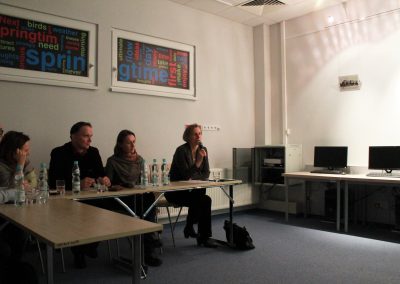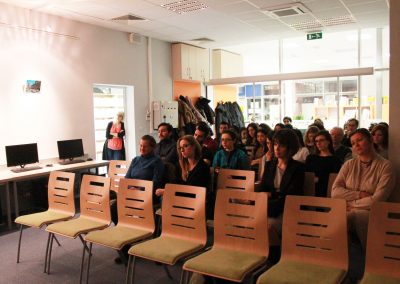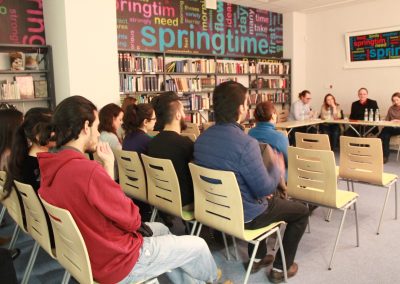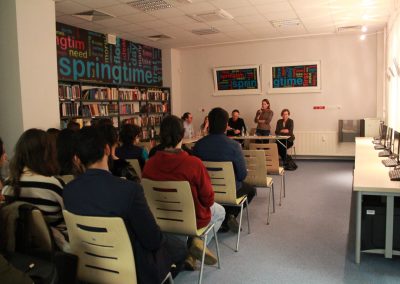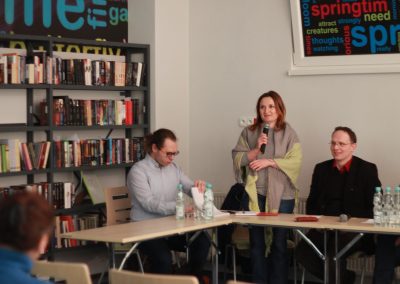On Wednesday we met in the Municipal Library Fil. 4 to participate in the debate entitled Gender ideology(ies): Man and woman – different by nature, inequal by society? We tried to find the answer to this question with our four guests: sociologists Borys Cymbrowski and Anna Czerner, philologist Katarzyna Molek-Kozakowska and biologist Elżbieta Pogoda.
We were aware that for most people the term gender is unfamiliar or even unfriendly, especially when someone is not a philologist or a social researcher, so we started with the basic questions: what gender is, how it exists in our respective fields of studies, and if there exists gender ideology. We can say that gender in general is about social consequences of being men, women or the others, because in the opinion of Elżbieta Pogoda even from a biological point of view there are more than only two sexes. And there is no evidence that one sex has an advantage over another.
In Polish media we encounter some false beliefs about the meaning of the word “gender”. But as Borys Cymbrowski mentioned it is a problem of confusion of nature with culture, because in the Polish language we have only one word (płeć) for gender and for sex. So some commentators confuse biological meaning with the cultural one. They accuse gender scholars of promoting a dangerous ideology which tries to convince people to choose their sex. As Anna Czerner said, the truth is that in the social sciences gender was a neutral category to analyse the relations between people in society, but unfortunately some institutions and politicians took one of the least popular topics in gender studies and used it as a basis to create and apply gender ideology as a political tool.
After that we focused mostly on language aspects within gender issues. Katarzyna Molek-Kozakowska indicated that for her it was easier to introduce herself in English than in Polish, because in Polish most names of academic professions have only a masculine gender, or even if it has a female gender, masculine forms sound more serious and more prestigious. But language is not a constant phenomenon – it is changing all the time. Twenty years ago we considered some female forms of words as strange, but today we take them for granted. We concluded that it is important to include more women-related forms to language, and it is one of the main catalysts of social changes in the public sphere.
We are really glad we could discuss it with you and with the citizens of Opole. We would like to thank you all for your presence and participation, and we hope to see you soon during another discussion. The aim of the whole debate was to clarify a little the problem of gender, but two hours is a short time when you are discussing such an important and complicated topic – so we treat this meeting only as a start. The debate is still open.

Thursday Donut Madness
Did you experience donut madness today? Do you wonder what the reason of its appearing is? It’s Fat Thursday (Tłusty czwartek in Polish)! Basically, the habit of eating greasy delicacies dates many centuries back, when eating fat treats would ensure prosperity and...
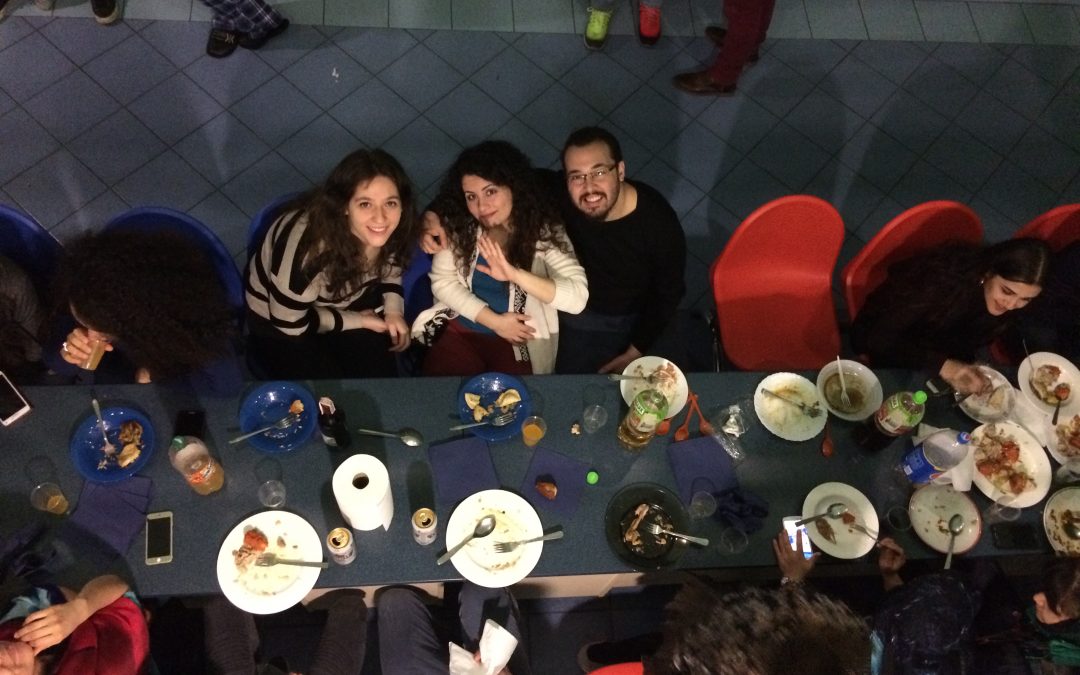
A Food Party is Always a Good Idea
The ninth floor of Niechcic got very lively again thanks to the food party organized by our students. We're looking forward to more of these!
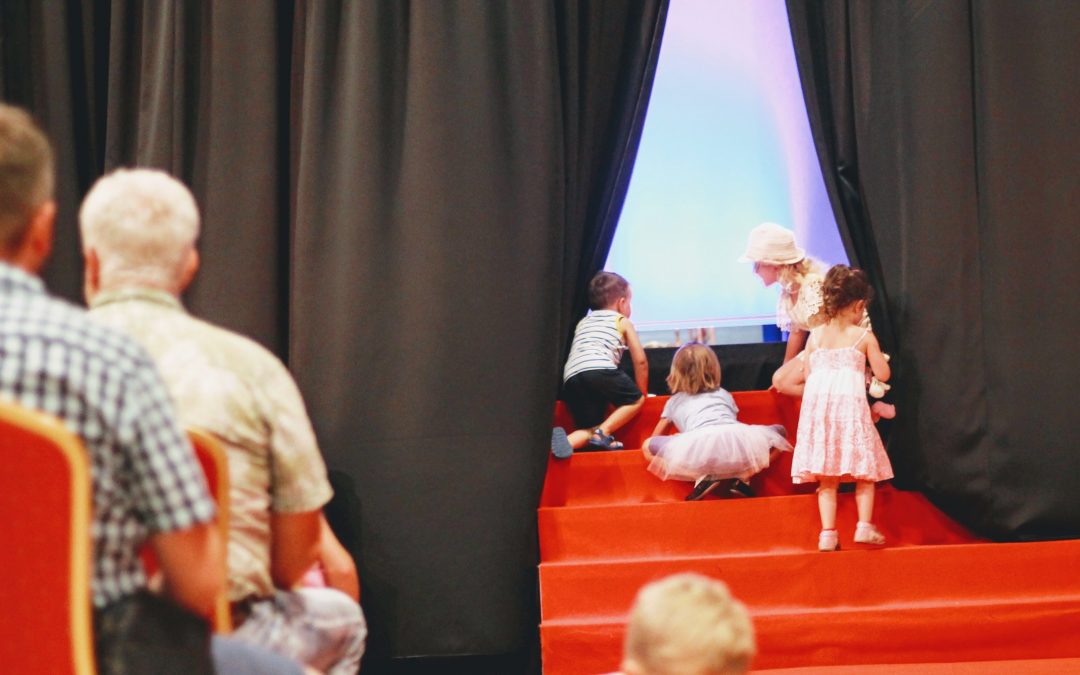
Drama in Action
We know that some of you are interested in fine art. This Friday evening you are invited to Opole Actor and Puppet Theater where you can attend the performance called Dramat w Akcji / Drama in Action. The stage reading of contemporary plays for teenagers and adults is...

Gender Ideology(ies). Man and Women – the same by nature, different by culture/Gender ideologie(s). Kobieta i mężczyzna – naturalnie inni, kulturowo nierówni?
The Municipal Public Library, Fil. 4, in Opole invites all those who are interested in gender issues and cultural differences to participate in the debate called Gender Ideology(ies). Man and Women - the same by nature, different by culture, organized by professors...
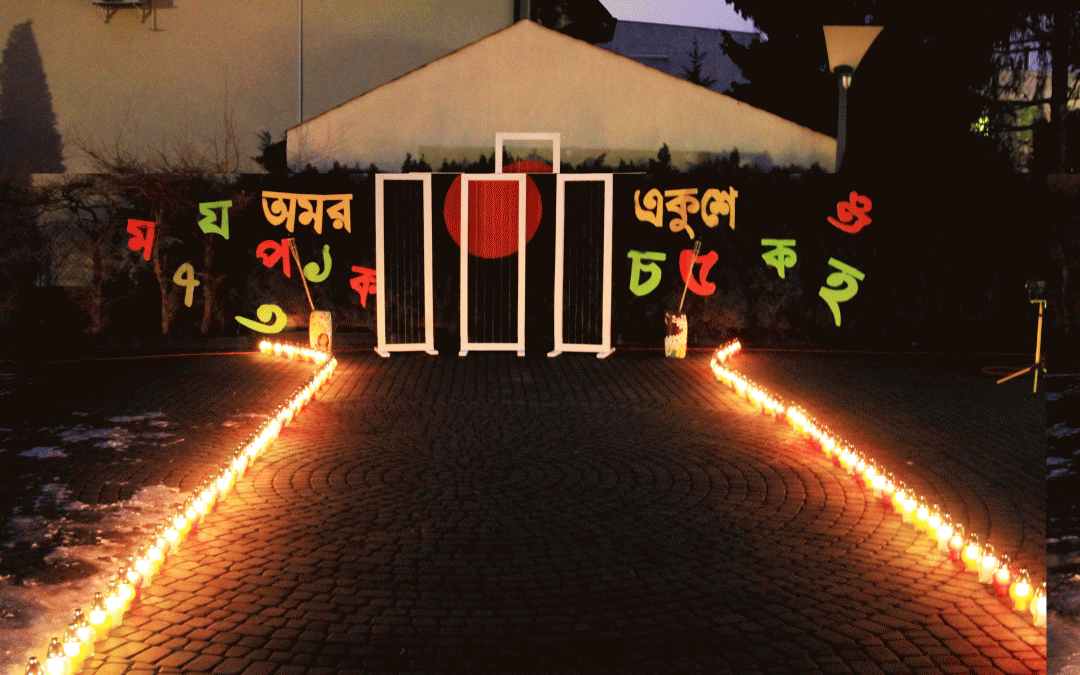
International Mother Language Day
Dear students, Today we observe the International Mother Language Day, which is celebrated worldwide in order to stress the importance of preserving all the languages as a vital part of cultural heritage. The date commemorates the death of five students who were shot...

Finishing Strokes of Adaptation
Every Adaptation Week for our Erasmus students traditionally finishes with a Welcome Party, which is meant to show that at the Uni of Opole you can always find somebody … to dance with.
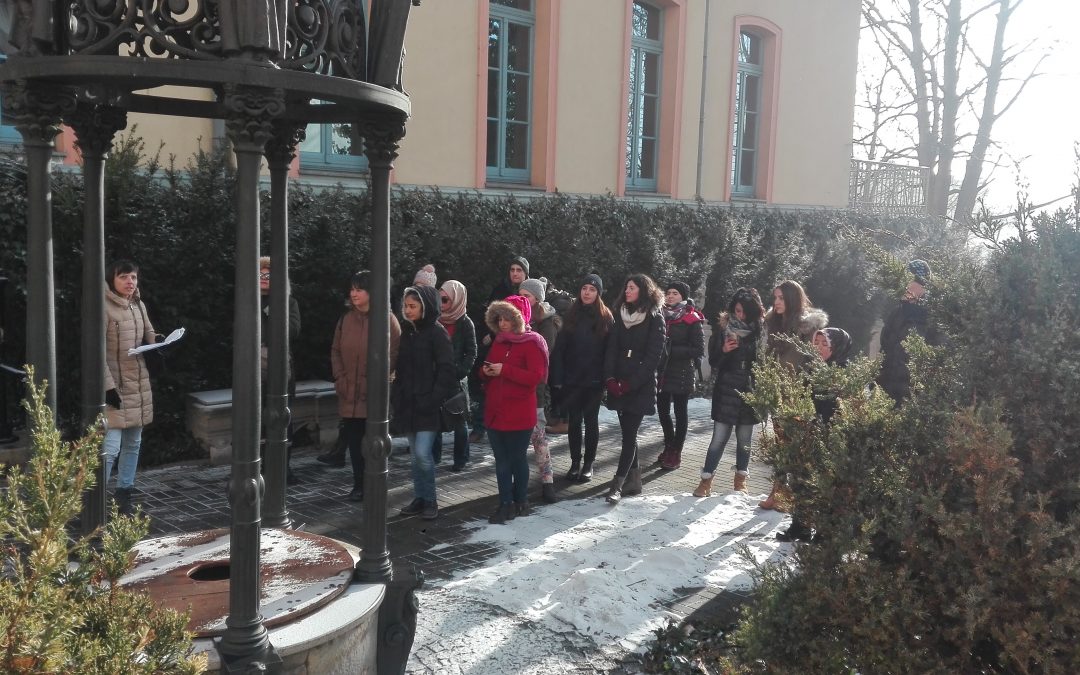
Welcome in the Summer Semester of 2016/2017
Yesterday, we had the pleasure of welcoming new Erasmus exchange students, who will be joining the University of Opole for the summer semester. The Erasmus officers and the Buddy Mentors took them for a walk around the central part of Opole during which they got...
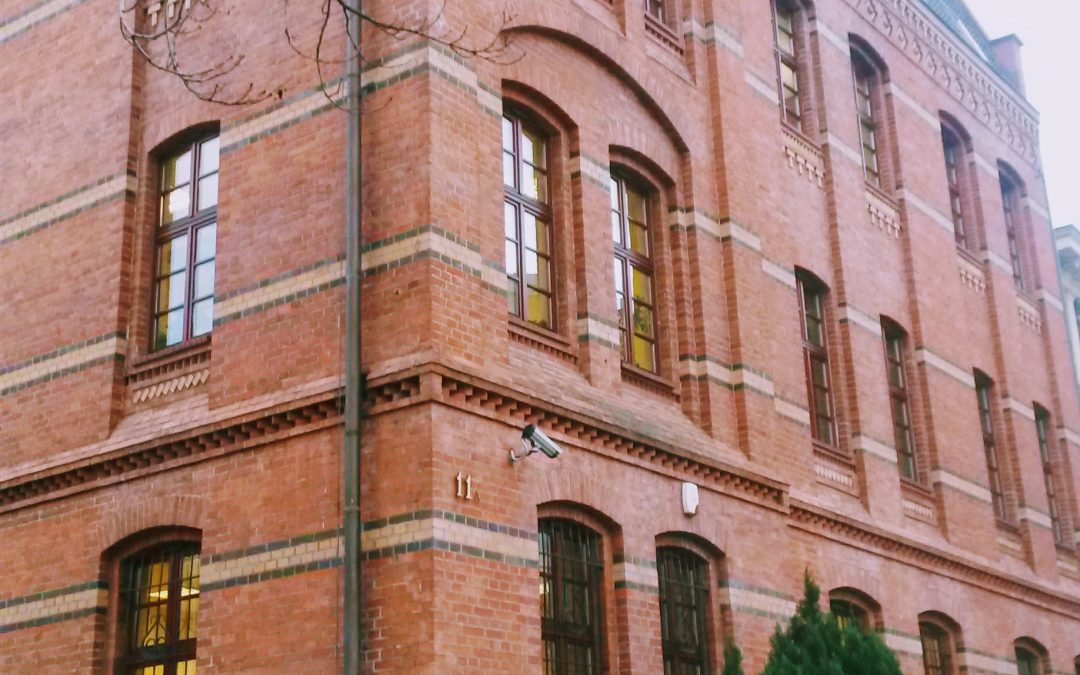
Adaptation Week for Erasmus Students
Dear students, We hope you feel good after the stressful exam session and the short break was enough for you to recharge your batteries. Very soon the summer semester will start bringing totally new experiences to those who have been staying at UO, who went abroad or...
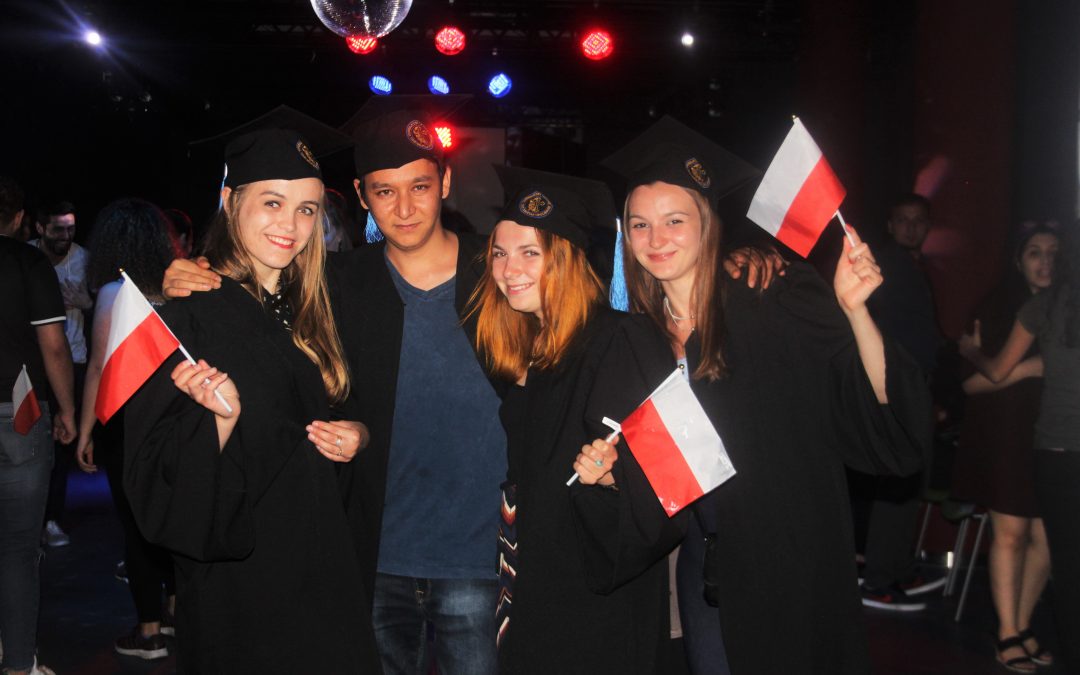
Want to learn Polish from scratch?
Apply for our Polish Philology with German programme
Dear students, We have the pleasure to announce the recruitment for Polish Philology with German. The programme has been designed for foreigners with no prior knowledge of the Polish language. The graduates of the 3-year BA programme will speak fluent Polish and good...
Warsztaty międzykulturowe/Intercultural Workshops
Kolejny raz jako organizacja Hello! mieliśmy przyjemność organizować warsztaty międzykulturowe we współpracy z Instytutem Socjologii i Studenckim Kołem Naukowym Socjologów. Tym razem naszymi gośćmi byli uczniowie z Zespołu Szkół Ogólnokształcących nr 1 w Prudniku....
